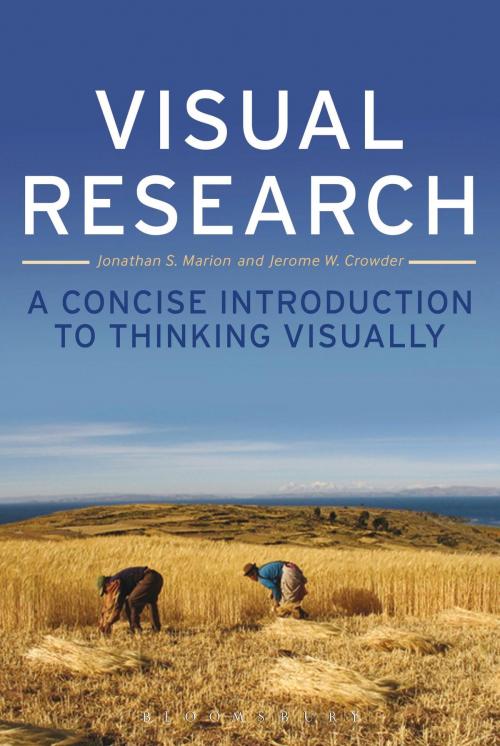Visual Research
A Concise Introduction to Thinking Visually
Nonfiction, Social & Cultural Studies, Social Science, Anthropology, Sociology| Author: | Jonathan S. Marion, Jerome W. Crowder | ISBN: | 9780857852083 |
| Publisher: | Bloomsbury Publishing | Publication: | August 15, 2013 |
| Imprint: | Bloomsbury Academic | Language: | English |
| Author: | Jonathan S. Marion, Jerome W. Crowder |
| ISBN: | 9780857852083 |
| Publisher: | Bloomsbury Publishing |
| Publication: | August 15, 2013 |
| Imprint: | Bloomsbury Academic |
| Language: | English |
Visual Research: A Concise Introduction to Thinking Visually is the first text to present a concise overview of the significant ethical, theoretical, and practical considerations for conducting research with images.
The capacity to take photos and video on handheld devices and the ability to store, post, and share such imagery online all offer tremendous opportunities for social research. The rapid development and popularity of such technology means that little technological proficiency is required, and even less theoretical and ethical consideration. This book provides an accessible introduction to doing visual research in the social sciences.
Beginning with ethical considerations, this book highlights the importance of thinking visually before engaging in visual research. Further themes involve creating, organizing, and using images and are presented so as to help readers think about and work with their own visual data. Boxed case studies and further reading suggestions enhance the utility of this primer.
Concise and highly focused, Visual Research will be an invaluable resource for visual, media, and communications students and researchers and others interested in visual research in the social sciences.
Visual Research: A Concise Introduction to Thinking Visually is the first text to present a concise overview of the significant ethical, theoretical, and practical considerations for conducting research with images.
The capacity to take photos and video on handheld devices and the ability to store, post, and share such imagery online all offer tremendous opportunities for social research. The rapid development and popularity of such technology means that little technological proficiency is required, and even less theoretical and ethical consideration. This book provides an accessible introduction to doing visual research in the social sciences.
Beginning with ethical considerations, this book highlights the importance of thinking visually before engaging in visual research. Further themes involve creating, organizing, and using images and are presented so as to help readers think about and work with their own visual data. Boxed case studies and further reading suggestions enhance the utility of this primer.
Concise and highly focused, Visual Research will be an invaluable resource for visual, media, and communications students and researchers and others interested in visual research in the social sciences.















